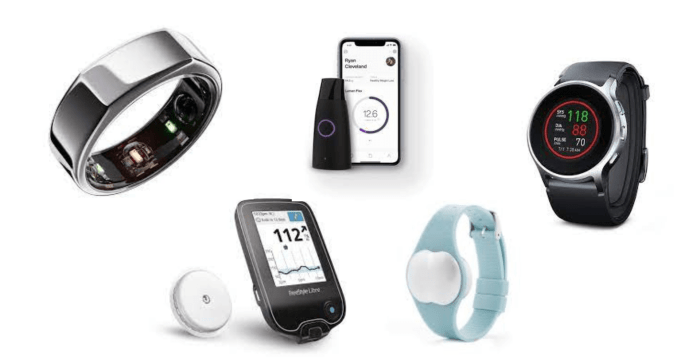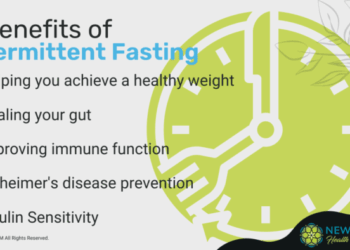As Best wearable devices for tracking health metrics takes center stage, this opening passage beckons readers with casual formal language style into a world crafted with good knowledge, ensuring a reading experience that is both absorbing and distinctly original.
Wearable devices have revolutionized how we track our health metrics, offering a convenient and efficient way to monitor various aspects of our well-being. From tracking physical activities to monitoring sleep patterns, these devices have become indispensable tools in our quest for better health.
Overview of Wearable Health Devices
Wearable health devices are innovative gadgets designed to track various health metrics and provide valuable insights into one's well-being. These devices are typically worn on the body and can monitor a wide range of health parameters in real-time.From heart rate and sleep patterns to activity levels and calories burned, wearable health devices offer a comprehensive view of an individual's health status.
By continuously collecting and analyzing data, these devices help users make informed decisions about their lifestyle choices and overall health.
Types of Health Metrics Tracked
Wearable health devices can track a variety of health metrics, including:
- Heart rate: Monitoring heart rate during rest and physical activity.
- Sleep patterns: Analyzing sleep quality, duration, and stages.
- Activity levels: Tracking steps taken, distance traveled, and calories burned.
- Blood pressure: Measuring blood pressure levels throughout the day.
- Stress levels: Providing insights into stress levels through heart rate variability.
Benefits of Using Wearable Devices
Wearable health devices offer numerous benefits, such as:
- Personalized insights: Tailored recommendations based on individual health data.
- Motivation: Setting goals and tracking progress to stay motivated and active.
- Early detection: Identifying potential health issues early through continuous monitoring.
- Convenience: Easy access to health data on-the-go for quick decision-making.
Examples of Popular Wearable Devices
Some popular wearable health devices in the market include:
- Fitbit: Known for its activity trackers and smartwatches with advanced health features.
- Apple Watch: Combines fitness tracking with smartwatch capabilities for comprehensive health monitoring.
- Garmin: Offers a range of GPS-enabled wearables for outdoor activities and health tracking.
- Whoop: Focuses on performance optimization through detailed sleep and recovery data.
Features to Consider
When looking for a wearable health device to track your health metrics, there are several important features to consider. These features can vary depending on your specific health goals and needs, so it's essential to understand what each device offers.
Comparison of Sensor Technologies
Sensor technologies play a crucial role in tracking health metrics accurately. Different wearable devices use various sensor technologies to monitor different health parameters such as heart rate, sleep patterns, activity levels, and more. Some common sensor technologies include:
- Accelerometer: Measures movement and activity levels.
- Heart Rate Monitor: Tracks heart rate in real-time.
- GPS: Provides accurate location and distance tracking.
- Skin Temperature Sensor: Monitors skin temperature changes.
Importance of Battery Life and Accuracy
Battery life is a crucial factor to consider when choosing a wearable health device. Longer battery life ensures that you can track your health metrics consistently without frequent recharging. Additionally, accuracy is paramount, as accurate data is essential for making informed decisions about your health and fitness goals.
Look for devices that offer a good balance between battery life and accuracy to get the most out of your tracking experience.
Fitness Tracking Capabilities
Wearable devices offer a wide range of features to monitor physical activities and track fitness progress. These devices are designed to help users stay active, set goals, and make healthier lifestyle choices.
Monitoring Physical Activities
- Step Tracking: Wearable devices track the number of steps you take throughout the day. This metric is essential for measuring overall activity levels and setting daily targets.
- Distance Tracking: By utilizing GPS or accelerometers, wearables can calculate the distance you cover during workouts or daily routines. This feature is useful for runners, cyclists, and hikers.
- Calories Burned: Wearable devices estimate the number of calories burned based on your activity level, heart rate, and other factors. This information helps you manage your energy balance and make informed decisions about nutrition.
Heart Rate Monitoring
Heart rate monitoring is a key feature of fitness tracking devices as it provides valuable insights into your cardiovascular health and workout intensity. By continuously monitoring your heart rate, wearables can:
- Optimize Workouts: Tracking heart rate zones helps you exercise more efficiently and effectively by ensuring you reach the desired intensity levels.
- Monitor Recovery: Resting heart rate data can indicate your fitness level and recovery progress over time. Lower resting heart rates often correlate with better cardiovascular fitness.
- Alert for Health Issues: Abnormal heart rate patterns can signal potential health issues, prompting users to seek medical advice and intervention.
Advanced Fitness Tracking Features
- VO2 Max Estimation: Some wearables can estimate your VO2 max, a measure of your maximum aerobic capacity. This metric can help you gauge your cardiovascular fitness level and track improvements over time.
- Sleep Tracking: Quality sleep is crucial for overall health and fitness. Wearable devices with advanced sleep tracking features monitor your sleep patterns, duration, and quality to provide insights for better rest and recovery.
- Workout Recognition: Smart wearables can automatically detect and categorize different types of workouts, such as running, cycling, or swimming. This feature simplifies activity tracking and ensures accurate data collection.
Health Monitoring Functions
Wearable devices are not just limited to tracking fitness metrics; they also play a crucial role in monitoring various health aspects. These devices provide valuable insights into key health metrics such as sleep patterns, stress levels, and blood oxygen saturation, allowing users to take proactive steps towards improving their overall well-being.
Sleep Patterns
Wearable devices equipped with advanced sensors can track your sleep patterns throughout the night. They monitor the duration and quality of your sleep, including the time spent in different sleep stages such as deep sleep, light sleep, and REM sleep.
By analyzing this data, users can identify any disruptions in their sleep patterns and make necessary adjustments to improve their sleep quality.
- Track duration and quality of sleep
- Monitor different sleep stages
- Identify disruptions in sleep patterns
Stress Levels
Some wearable devices come with features that can measure stress levels by analyzing heart rate variability and other physiological signals. By continuously monitoring stress levels throughout the day, users can identify triggers and patterns that contribute to stress. This information empowers users to practice stress-reducing techniques and adopt healthier coping mechanisms.
- Measure stress levels through heart rate variability
- Continuous monitoring of stress throughout the day
- Identify triggers and patterns contributing to stress
Blood Oxygen Saturation
Certain wearable devices are equipped with sensors that can measure blood oxygen saturation levels. This metric is crucial for assessing respiratory health and overall well-being. By tracking blood oxygen saturation levels, users can detect any potential issues with oxygen supply to the body and take appropriate actions to maintain optimal health.
- Measure blood oxygen saturation levels
- Assess respiratory health
- Detect potential issues with oxygen supply
Summary

In conclusion, Best wearable devices for tracking health metrics offer a plethora of benefits for users looking to enhance their overall well-being. By providing valuable insights into various health metrics and fitness tracking capabilities, these devices empower individuals to make informed decisions about their health.
Embrace the future of health tracking with the best wearable devices available in the market today.
Query Resolution
How accurate are wearable devices in tracking health metrics?
Wearable devices vary in accuracy depending on the sensors used and the quality of the device. It's essential to research and choose a device known for its reliability in tracking health metrics.
Can wearable devices help in improving sleep patterns?
Yes, many wearable devices can track sleep patterns, providing insights into sleep quality and duration. Users can use this data to make lifestyle changes that may improve their sleep.
Do wearable devices with fitness tracking capabilities also monitor heart rate?
Yes, most wearable devices with fitness tracking features also include heart rate monitoring, which is crucial for tracking exertion levels during physical activities.










